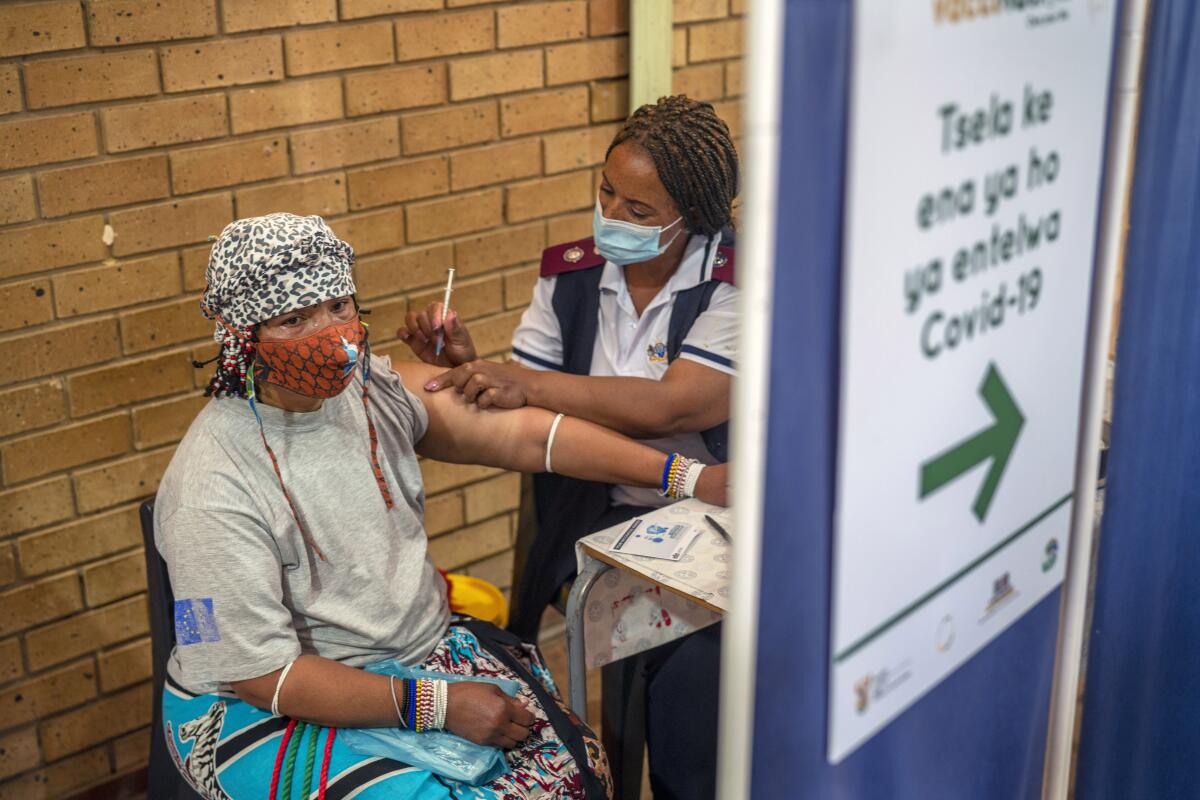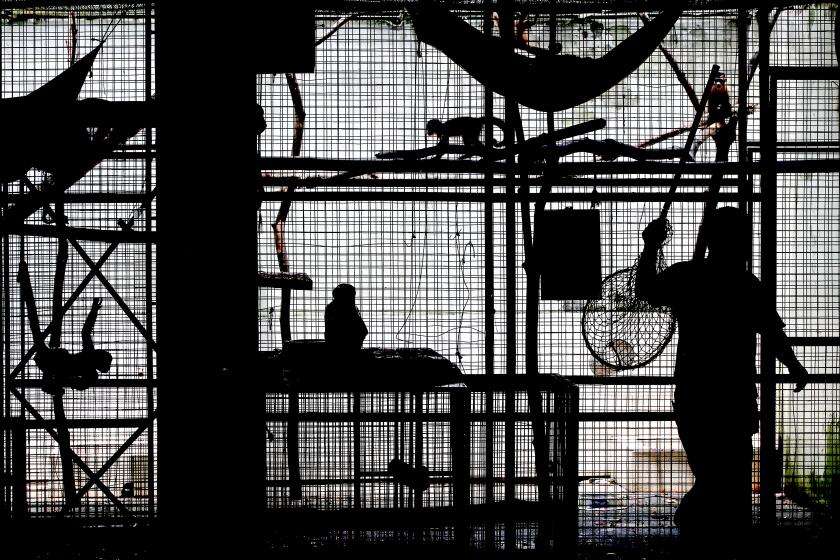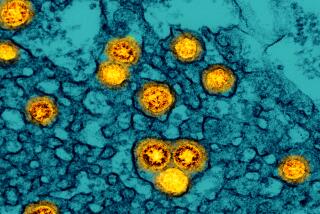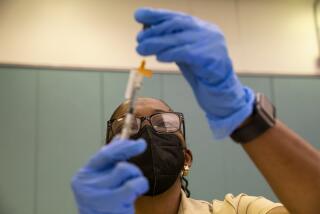Omicron-stricken South Africa may offer a glimpse into the pandemic future

- Share via
JOHANNESBURG — Dr. Sikhulile Moyo was analyzing coronavirus samples in his lab in Botswana last week when he noticed they looked startlingly different from others.
Within days, the world was ablaze with the news that the virus had a new variant of concern — one that appears to be driving a dramatic surge of infections in South Africa and offering a glimpse of where the pandemic might be headed.
New COVID-19 cases in South Africa have burgeoned from about 200 a day in mid-November to more than 16,000 on Friday. Omicron was detected more than a week ago in the country’s most populous province, Gauteng, and has since spread to all eight other provinces, Health Minister Joe Phaahla said.
Even with the rapid increase, infections are still below the 25,000 new daily cases that South Africa reported in the previous surge, in June and July.
Little is known about the new variant, but the increase in South Africa suggests it might be more contagious, said Moyo, the scientist who may have been the first to identify the new variant, though researchers in neighboring South Africa were close on his heels. Omicron has more than 50 mutations, and scientists have called it a big jump in the evolution of the virus.
It’s not clear whether the variant causes more serious illness than other strains or that it can evade the protection provided by vaccines. Phaahla noted that only a small number of people who have been vaccinated have gotten sick, mostly with mild cases, while the vast majority of those who have been hospitalized were not vaccinated.
But in a worrisome development, South African scientists reported that Omicron appears more likely than earlier variants to cause reinfections among people who have already had a bout with COVID-19.
“Previous infection used to protect against Delta, and now with Omicron it doesn’t seem to be the case,” one of the researchers, Anne von Gottberg of the University of Witwatersrand, said at a World Health Organization briefing on Thursday.
Deforestation is erasing the line between humans and wild animals — and increasing the chances of the next global pandemic.
Though the study did not examine the protection offered by vaccination, Von Gottberg said: “We believe that vaccines will still, however, protect against severe disease.”
The findings, posted online Thursday, are preliminary and haven’t yet undergone scientific review.
South Africa’s hospitals are so far coping with the surge, even those in Gauteng province, which accounts for more than 70% of all new infections, Phaahla said.
The picture could change because most of those infected thus far have been younger people, who generally do not get as sick as older patients. But Moyo expressed hope that vaccines would continue to work against the variant.
“I have a lot of hope from the data that we see that those vaccinated should be able to have a lot of protection,” he said.
That dovetails with what WHO officials in Asia said Friday. While warning that cases could well rise quickly because of Omicron, Dr. Takeshi Kasai, WHO regional director for the Western Pacific, said the measures used against the Delta variant — which itself caused surges the world over — should remain at the core of the response.
“The positive news in all of this is that none of the information we have currently about Omicron suggests we need to change the directions of our response,” Kasai said.
That means continuing to push for higher vaccination rates, abiding by social-distancing guidelines and wearing masks, among other measures, said WHO official Dr. Babatunde Olowokure.
While more than three dozen countries worldwide have reported Omicron infections, the numbers so far are small outside of South Africa. That has led many countries to race to impose travel restrictions on visitors from southern Africa — a move WHO officials said may buy some time, though the agency previously urged against closing borders.
The travel restrictions have been severely criticized by South Africa, which says it is being punished for being transparent and moving so quickly to alert the world to Omicron. The WHO said it was notified by the country on Nov. 24 about the new variant.
“What we must reemphasize is that while our scientists and those in Botswana were the first to discover and report on the variant, no one knows where it originated,” Phaahla said.
More to Read
Sign up for Essential California
The most important California stories and recommendations in your inbox every morning.
You may occasionally receive promotional content from the Los Angeles Times.











